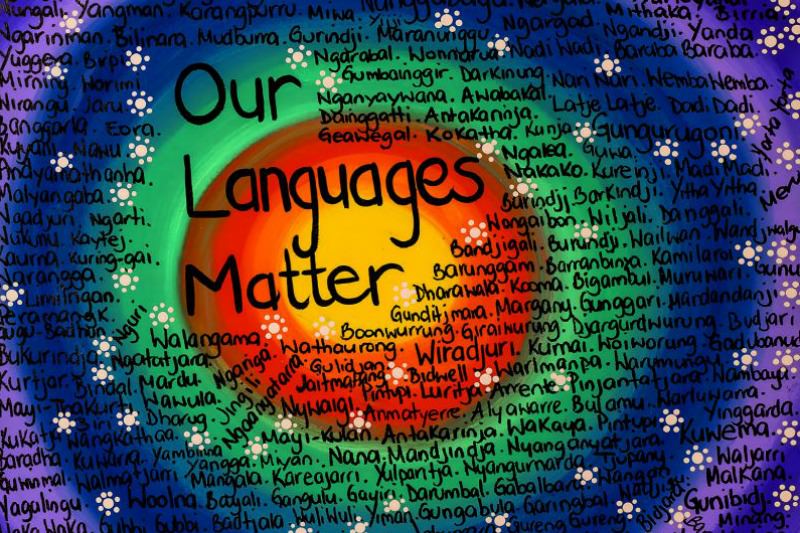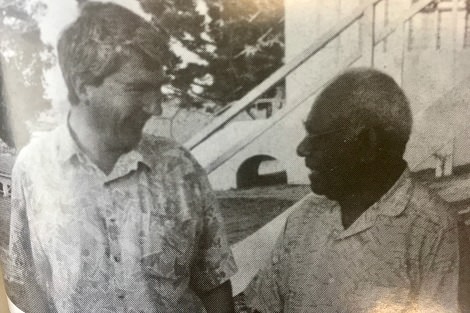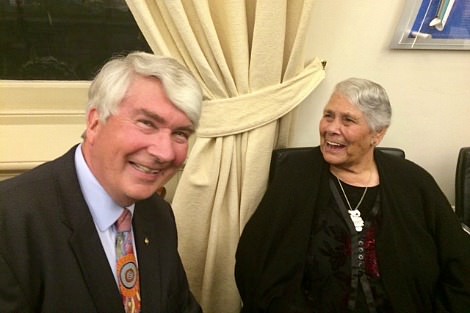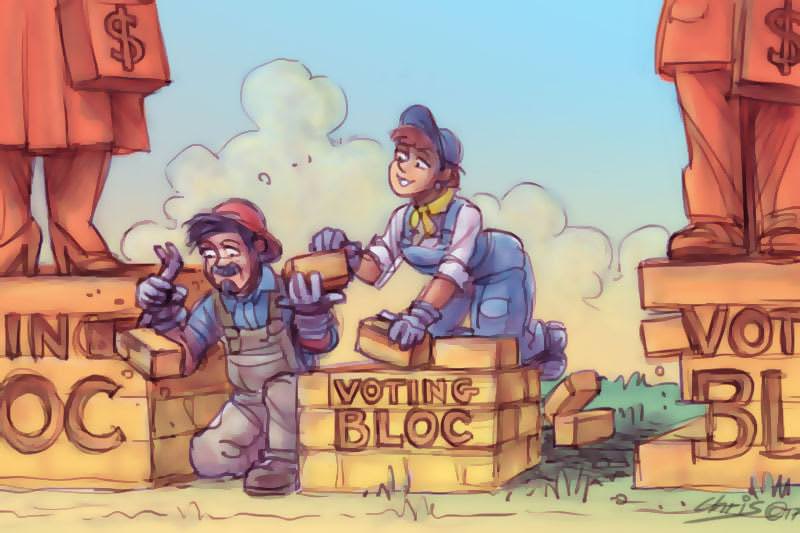Keywords: Indigenous Rights
There are more than 200 results, only the first 200 are displayed here.
-

RELIGION
- Frank Brennan
- 30 August 2017
6 Comments
'There was one controversy in which Lionel Bowen was involved that does provide good lessons for the contemporary Catholic considering the desirable law or social policy on a contested issue - lessons for the citizen weighing what is for the common good. Back in 1979 there was debate in the Parliament on a motion which was framed to stop Medicare funding of abortions. Bowen, a strict Catholic, was strongly opposed to the motion. He did not think the motion was about abortion. He thought it was about money.' Frank Brennan's 2017 Lionel Bowen Lecture
READ MORE
-

INTERNATIONAL
- Fatima Measham
- 17 August 2017
15 Comments
Instead of refining his initial remarks about a Nazi rally in Charlottesville, which brutally claimed the life of a counter-protester, Donald Trump has doubled down. At a heated news conference in New York, he demanded that journalists define 'alt-right', invoked the idea of an 'alt-left', and lay blame on 'both sides'.
READ MORE 
-

AUSTRALIA
- Sandra Norsen
- 08 August 2017
13 Comments
In the wake of the Elijah Doughty verdict I find myself considering the implications for my own family and loved ones. I have followed for some time the extraordinary number of American citizens recklessly killed by police (over 700 so far this year and counting) and I am distraught at the disproportionate number of black people, including minors as young as 14 and 15, represented in these statistics. The prejudice and self-righteous bigotry behind these deaths in unconscionable. But until the Elijah Doughty case, I had not considered that this horrific, racially motivated violence does occur so much closer to home.
READ MORE 
-

ARTS AND CULTURE
- Megan Graham
- 03 August 2017
3 Comments
About one in six newlyweds in the United States is involved in a ‘mixed marriage’, according to the Pew Research Center. At home, the percentage is higher; in 2009 approximately 42 per cent of marriages involved at least one partner who was not born in Australia.
READ MORE 
-

AUSTRALIA
- Frank Brennan
- 04 July 2017
6 Comments
It is no disrespect to those Aborigines and Torres Strait Islanders gathered at Uluru to say that now is the time for the report of the Referendum Council to be scrutinised by our national politicians, and that our elected leaders should pay special heed to the observations of those Indigenous members of the federal parliament who have offered considered reflections on the way forward. In particular, our elected representatives should have regard to the views of Patrick Dodson who is now Bill Shorten's Shadow Assistant Minister for Indigenous Affairs and Aboriginal and Torres Strait Islanders.
READ MORE 
-

RELIGION
- Frank Brennan
- 03 July 2017
There is no point in proceeding with a referendum on a question which fails to win the approval of you, the First Australians. Neither is there any point in proceeding with a referendum which is unlikely to win the approval of the overwhelming majority of the voting public, regardless of when they or their ancestors first arrived in Australia. Given that you Indigenous Australians have spoken strongly through your representatives at Uluru in support of a First Nations Voice, it is now for the Referendum Council to recommend to government a timetable for constitutional change with maximum prospects of a 'Yes' vote.
READ MORE
-

AUSTRALIA
- Frank Brennan
- 26 June 2017
7 Comments
Anglican priest, traditional landowner and land rights campaigner David Passi has died. He was the last surviving plaintiff in the historic Mabo decision. A year after the Mabo decision I travelled to the Torres Strait and met James Rice and Passi, the two successful litigants in the case. Returning by boat to the mainland from the island of Mer in the Murray Islands, the waters of the Torres Strait were exceedingly calm.
READ MORE 
-

AUSTRALIA
- Frank Brennan
- 13 June 2017
1 Comment
This evening, we come together deliberately as people of diverse faiths and none, affirming the blessing of life in an inclusive country where all world views are to be respected. We are able to affirm that our spiritual lives sustain and strengthen our public lives and the vitality of the polis. Our Muslim hosts show us how to give thanks reverently for all the blessings of life, and how to attest publicly the spiritual dimension of all human life. Those of us who are migrants or descendants of migrants need to be particularly attentive to the yearnings and aspirations of those Australians who rightly claim an indigenous heritage with ancestors who have thrived on this continent for up to 60,000 years.
READ MORE
-

AUSTRALIA
- Frank Brennan
- 31 May 2017
19 Comments
The consultations conducted in Indigenous communities under the auspices and with the financial support of the Referendum Council have yielded a constant message that Indigenous Australians want substantive constitutional change and not just symbolic or minimalist change. The question is: How much should we attempt to put in the Constitution now, and how much should we place outside the Constitution, or delay for constitutional inclusion until another day?
READ MORE 
-

AUSTRALIA
- Frank Brennan
- 31 May 2017
6 Comments
Indigenous leaders this last week have called for the creation of two new legal entities. They want a First Nations Voice enshrined in the Constitution, and a Makarrata Commission set up by legislation. The Makarrata Commission would supervise agreement making between governments and First Nations and engage in truth telling about history. The envisaged destination is a national Makarrata (or treaty). So the immediate constitutional issue is the creation of the First Nations Voice. There is no point in proceeding with a referendum on a question which fails to win the approval of Indigenous Australia. Neither is there any point in proceeding with a referendum which is unlikely to win the approval of the voting public.
READ MORE
-

AUSTRALIA
- Ann Deslandes
- 26 May 2017
4 Comments
Wealth inequality in Australia is flourishing. The top one per cent of household wealth in Australia is moving toward being 20 per cent of total wealth, and the country is a preferred destination for millionaires. With a government that prefers to impoverish and vilify the disadvantaged and spend big on coal mines, this does not look likely to shift. But there are always other paths to social justice, and in Australia one may be through the millionaires - or at least the companies on which their fortunes are built.
READ MORE 
-

EDUCATION
- Frank Brennan
- 24 May 2017
20 Comments
The level of consultation prior to the announced changes was appalling. But that is water under the bridge. It's time to enunciate some clear principles, and for respectful consultations to take place investigating how those principles can be best applied. This must be done within the realistic political environment in which we find ourselves. At the same time the Catholic system should ensure its schools are more available to the poor, enacting Pope Francis's desire for 'a Church which is poor and for the poor'.
READ MORE 